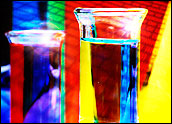
At least partly reversing Bush Administration aversion to emergent exotic biological research, President Barack Obama’s 13-member Commission for the Study of Bioethical Issues Thursday issued 18 recommendations on synthetic biology — life, designed and built in the laboratory.
“Our major recommendation is that the federal government, through the Executive Office of the President, start to coordinate and oversee what all federal agencies are doing in the field of synthetic biology,” said commission executive director Valerie Bonham.”We do not recommend that additional agencies or oversight bodies be created to oversee synthetic biology.”
Sparked by a J. Craig Venter Institute announcement that it had created a synthetic bacteria, the presidential commission held public hearings; heard from dozens of ethicists and scientists; and sized up the pros and the cons. New drugs, vaccines, and biofuels topped a list of potential synthetic bio benefits, while a risk worthy of science fiction author Michael Crichton capped the commission’s worries: accidental release of a laboratory-created organism.
Ultimately, commissioners recommended “that the government stay current on advances and remain forward-looking about the potential benefits and risks to the public,” Bonham told TechNewsWorld.
“We want all researchers to go through ethics education. And we want to find ways to better educate the public about synthetic biology. One idea is to create a biology version of FactCheck.org, which would let the public sort through claims made about the science in order to figure out what is true and what isn’t,” she suggested.
“We believe the Commission’s report is comprehensive and that their recommendations are wise, warranted, and restrained,” Venter said in a prepared statement.
Playing God?
Synthetic biology is a many-splendored field that has yielded “so much good,” said Elizabeth Cowles, professor and assistant chair of the Eastern Connecticut State University biology department. “Yet many do not understand or appreciate its achievements.”
Those achievements range from the exotic to the once-exotic, such as production of human insulin by bacteria, Cowles told TechNewsWorld. “Insulin had been isolated from either bovine or porcine liver; while the insulin worked, it increased the chances of adverse reactions.”
Another benefit commission director Bonham called “particularly promising” is a synthetic version of the antimalarial drug Artemisinin.
“Natural supplies of Artemisinin are limited, and this drug is the most effective one to fight malaria, especially severe malaria, around the world,” she explained.
Despite the potential benefits, ethical and moral dilemmas help cloud public understanding.
Using human embryos to produce stem cells represents one recent ethical flash point, Cowles explained.
The idea that synthetic biology is tantamount to “playing God”is another thorny — but unfounded — ethical issue, she added.
“We scientists are trying to alleviate human suffering and cure diseases,” said Cowles. “This idea of ‘playing god’ does not enter the equation.”
At least, not for ethical scientists.
“No doubt, there are always governments and scientists who wish to do ill,” Cowles said. “A combination of effective university, corporation and government oversight should prevent, or at least decrease, this possibility.”
The presidential commission should be an effective and transparent lynchpin in this effort, she said. “The panel does not operate in a vacuum; the public can voice opinions which are taken seriously.”
Citizen Science
With names such as Biocurious, 23andme, and DIYgenomics — a nonprofit open source provider of Android and iPhone Web apps that can help individuals design genetic studies or shop genomic sequencing services — “do it yourself” biology companies motivated the commission to examine what DIYgenomics founder Melanie Swan calls “citizen science.”
Individuals might use DIY genetic tools to self-assess risk for a genetically transmitted disease, or — in a more far-fetched scenario — build a synthetic microbe in a garage.
With low barriers to entry, synthetic biology poses unusual regulatory dilemmas.
“A lot of the work can be done outside established institutions that have processes in place to handle risk,” said biotechnology policy attorney Michael Rodemeyer, a University of Virginia Engineering School adjunct faculty member who testified before the presidential commission in July.
“Many individuals have actually taken up synthetic biology as a hobby. It doesn’t require expensive equipment,” Rodemeyer — whose commission testimony was based on his report for the Woodrow Wilson International Center for Scholars, “New Life, Old Bottles: Regulating First-Generation Products of Synthetic Biology” — told TechNewsWorld.
Although the commission concluded that “there appears to be no serious risk of completely novel organisms being constructed in noninstitutional settings like the DIY community,” Bonham explained, “the Commission recommends that the government continue to monitor this field through a coordinated effort under the Executive Office of the President and the Department of Homeland Security.”
Sounds ominous, but it’s “just the start to a process,” Bonham added. “What happens now is continued public engagement on synthetic biology and engagement by the federal government on many levels.”



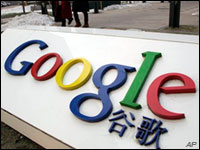
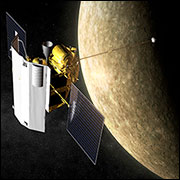
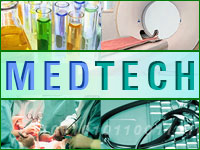




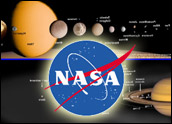









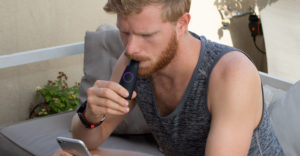

































The notion of synthetic biology is like saying synthetic physics. We forget that we are part of biology, not the other way around. Human intervention does not make it any less biology or physics. Applying the knowledge is the issue. The more that government is unwilling to fund research, the less able it will be to give ethical guidance as to the conduct of research. As to fact checking, you might want to have a respectful discussion with Wikipedia, where the average person is more likely to look for answers first.